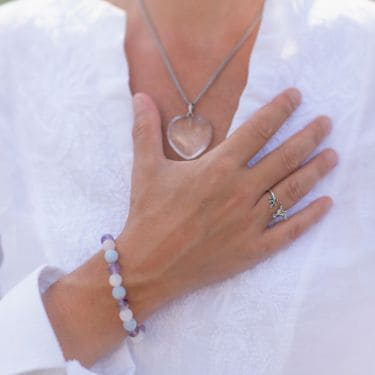In our fast-paced world, where stress is almost an inevitable byproduct of our daily lives, concepts such as mindfulness and relaxation often come to the forefront of conversations about mental health.
We hear these words tossed around, often interchangeably, but how do we differentiate between the two? Are they the same, or do they represent distinct aspects of our well-being?
Mindfulness is a state of active awareness, focusing on the present moment without judgment. It involves observing thoughts and emotions without getting caught up in them.
Relaxation, however, aims to reduce stress and promote calmness by engaging in activities that induce a sense of ease and tranquillity.
While relaxation is a method to achieve calmness, mindfulness goes beyond relaxation by cultivating awareness and acceptance of one’s experiences.
In this article, I aim to dive deep into mindfulness and relaxation, drawing from my own experiences and journeys. In this piece, I’ll also elucidate the types and facets of relaxation, hoping to shed light on these important aspects of our mental landscape.

How Is Mindfulness Different From Relaxation?
To put it simply, mindfulness and relaxation, though interconnected, serve different purposes and engage different aspects of our being.
Relaxation techniques, such as deep breathing, yoga, or listening to calming music, primarily target the physical body, aiming to relieve muscular tension and stress. They work on diverting one’s focus away from stressors, inducing a state of calm and peace.
Mindfulness, however, is not just about achieving a relaxed state. It is more about intentionally paying attention to our thoughts, feelings, and bodily sensations in the present moment without judging or resisting them. Its goal is not necessarily to get rid of stress but to cultivate a non-judgmental awareness of it.
In my personal journey, I found that while relaxation techniques provided me with temporary relief, mindfulness allowed me to develop a deeper understanding and acceptance of my experiences, leading to long-term emotional resilience.
Is Mindfulness A Relaxation Exercise?
A common misconception I’ve encountered is the idea that mindfulness is a relaxation exercise. While it’s true that practising mindfulness can lead to feelings of relaxation, it’s important to note that this is not its primary objective.
Mindfulness is an exercise in attention, not relaxation. It’s about developing the ability to stay focused on the present moment, regardless of whether it is calm or chaos.
So, while you might feel relaxed during or after a mindfulness exercise, the goal is not to achieve relaxation but rather to cultivate awareness and acceptance of the present moment. It’s a subtle yet crucial difference in understanding the true essence of mindfulness.
How Can I Be Mindful And Relax?
Practising mindfulness and relaxation is not mutually exclusive; they can be integrated into one’s daily routine to foster a balanced state of being. Here is how you can practice both:
Begin with relaxation techniques, such as deep breathing or progressive muscle relaxation. These exercises can reduce physical tension and prepare your mind for mindfulness practice. Spend a few minutes each day on this, perhaps in a quiet space where you will not be easily disturbed.
Following this, transition into practising mindfulness. You might choose to do this by focusing on your breathing, noticing the sensation of air entering and exiting your body, or observing the thoughts that arise in your mind, letting them come and go without judgment. It’s important to remember that mindfulness is about acceptance. Even if your mind wanders, just gently bring your focus back without criticizing yourself.
It’s worth noting that mindfulness isn’t about emptying your mind or achieving a certain state. Rather, it’s about noticing what’s happening in the present moment, be it comfortable or uncomfortable, and acknowledging it without trying to change it.
In my personal experience, combining relaxation techniques with mindfulness practice has been incredibly beneficial. While the relaxation techniques helped to alleviate immediate stress, mindfulness provided me with insight into my internal experiences, enhancing my ability to cope with stress in the long run. It’s a journey of self-discovery and self-acceptance, and while it may not always be easy, it’s certainly worth the effort.
What Are The Two Types Of Relaxation?
Relaxation can be broadly classified into two types: passive relaxation and active relaxation.
Passive relaxation is perhaps the type most people would typically think of. This involves activities that require minimal effort, allowing your body and mind to rest and recuperate. It might include taking a hot bath, lying in a quiet room, listening to calming music, or even sitting comfortably with your eyes closed. Passive relaxation aims to reach a tranquil state, with your mind free from distractions or stressors.
On the other hand, active relaxation involves engaging in activities that, while they may need a certain level of physical or mental effort, help release stress and promote a sense of well-being. Active relaxation includes activities like yoga, tai chi, walking in nature, or even a mindful hobby such as painting or gardening.
In my experience, both types of relaxation offer their unique benefits and can be used in tandem for a holistic approach to stress management. While passive relaxation helps calm the mind and body, active relaxation can serve as a productive outlet for stress, simultaneously invigorating the body and calming the mind.
Final Mindful Thoughts
Mindfulness and relaxation, while sharing certain similarities, are fundamentally different in their approach and objective. Relaxation techniques primarily aim to alleviate physical tension and stress, providing immediate relief.
On the other hand, mindfulness is not about escaping or changing our experiences but rather developing an accepting and non-judgmental awareness of them.
Passive and active relaxation have unique benefits and can be incorporated into your daily life for effective stress management. Integrating these practices can lead to enhanced emotional resilience, self-understanding, and overall well-being.
Remember, the journey of mindfulness and relaxation is deeply personal, and there’s no ‘one size fits all’ approach. Explore, practice, and discover what works best for you.
